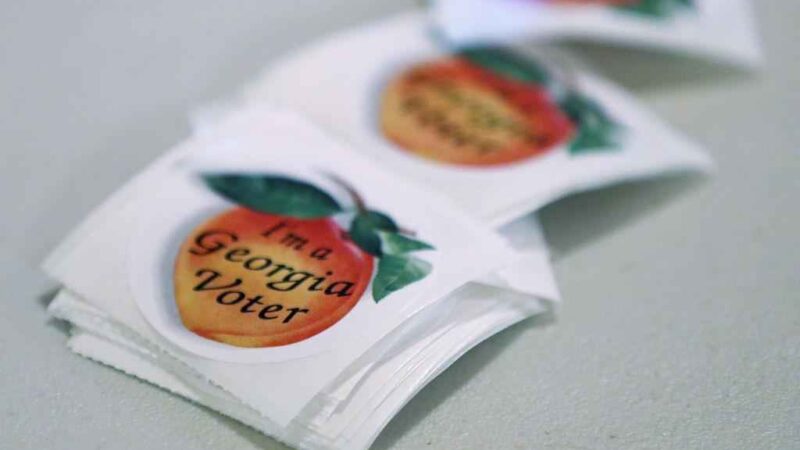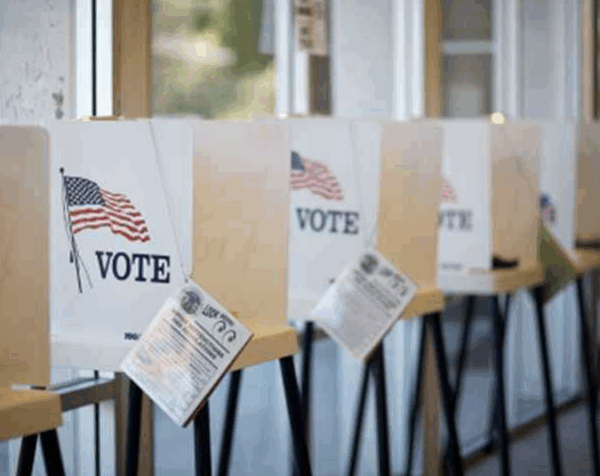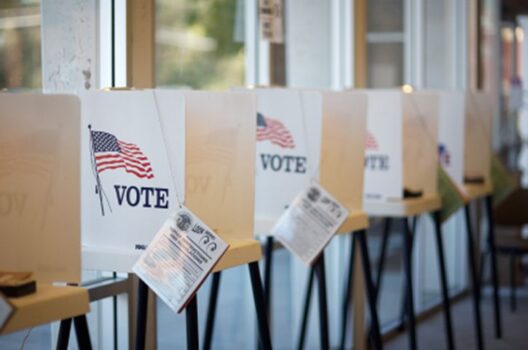Voter Rights
The ACLU of Georgia proudly champions, protects, and defends YOUR constitutional right to vote. Voting is the cornerstone of our democracy upon which all civil liberties rest.

Following several years of the Georgia Legislature passing harmful voting-related bills, the fight for voting rights remains as critical as ever. Politicians across the country continue to engage in voter suppression efforts including additional obstacles to registration, access to the ballot, and large-scale dilution of minority voters’ rights. Through litigation and advocacy, the ACLU of Georgia is fighting back against attempts to curtail the vital right that is preservative of all others, the right to vote.
PROTECTING VOTER RIGHTS IN GEORGIA
LOCAL ELECTION ADVOCATES AND DEFENDERS (LEAD) PROGRAM
Local election offices in Georgia make the crucial decisions that let us freely exercise our constitutional right to vote. We must work at the local level to hold election officials accountable to Georgia voters. The Local Election Advocates and Defenders (LEAD) program helps build more transparent, effective, accessible, and responsive elections offices. If you are interested in becoming a LEADer please review the detailed job description and sign up to be a volunteer.
Learn more about Becoming a Leader
POLL OBSERVER PROGRAM
ACLU of Georgia Poll Observers will play a crucial role in the coming weeks by supporting voters during early voting and, on Election Day, and by observing the tabulation and, certification of results.
Sign up to be a Poll Observer
POLL WORKER PROGRAM
Poll workers are essential to securing free and fair elections. Our state needs more Georgians to serve as poll workers committed to understanding election law, and skilled with technology. To serve as a poll worker in Georgia, you must be a U.S. citizen, at least 16 years old, and be able to read, write, and speak English. You can serve as a poll worker only in your county of residence or a different county if you are employed by that county.
Learn more about becoming a poll worker
WHAT TO DO IF YOUR VOTER REGISTRATION IS FLAGGED FOR CANCELLATION
Every two years, the Georgia Secretary of State identifies voters whose registrations face cancellation unless they respond or contact their local elections office within 40 days. We want you to have the tools needed if you find yourself facing removal from the voter rolls. Our guide includes information on how to check your registration, what to do if you receive a “no contact” notice, and more.
Read the guide
GEORGIA'S VOTER RESOURCE
GEORGIA’S VOTER SUPPRESSION LAW (SB 189)
Senate Bill 189, signed by Georgia’s governor in early May 2024, imposes more barriers for Georgia voters and elections administrators. The law lowers the barrier for making biased and baseless voter challenges around the state, creates confusion for unhoused voters, makes it more difficult for county elections boards to interpret the law, and increases requirements for already overworked elections officials. The ACLU of Georgia strongly opposes SB 189.
How does this affect Georgians?
- The State vaguely defines what constitutes “probable cause” for upholding challenges to voter eligibility, which could lead to voters being removed from the rolls. This provision enables more baseless attacks on voters.
- The State is forcing unhoused people without a permanent mailing address to receive their election-related mail at the County Registrar's Office. This change burdens the registrar by making it responsible for people’s mail and creates a barrier for voters to receive important election mailers.
- The State has instituted a difficult mandate by requiring counties to report the results of all absentee ballots by an hour after polls close.
- Beginning July 1, 2026, the State will no longer use QR codes to count ballots created on the state ballot marking devices. That is how votes are counted now.
Our Action
Elected state officials should work to make voting easier and not more difficult for Georgians. We are committed to protecting Georgia voters and will see the governor in court.
GEORGIA'S ANTI-VOTER LAW (SB 202)
Senate Bill 202 attacks absentee voting, criminalizes Georgians who give a drink of water to their neighbors, allows the State to take over county elections, and retaliates against the elected Secretary of State by replacing him with a State Board of Elections Chair chosen by the legislature—rather than the voters.
How does this effect Georgia voters?
- The State cuts off citizens’ ability to apply for an absentee, mail-in ballot 11-days before the final election day and restricts when officials can start processing ballot requests, slowing the absentee process.
- The State restricts drop box locations and hours to inside early voting locations during office hours only.
- The State can take over local election boards and hire and fire local employees when an election result displeases a politician.
- The State bans local counties, cities, and towns from receiving private funding which has paid for things such as generators during a terrible storm on Election Day.
- The State forces citizens who need to vote by mail to risk identity theft by requiring personal information to be more easily accessible on absentee ballots.
Our Lawsuit
Civil rights groups filed a federal lawsuit against Georgia’s sweeping law that makes it much harder for all Georgians to vote, particularly voters of color, new citizens, and people with disabilities.
The lawsuit challenges multiple provisions in SB 202, including its increased criminalization of participation in elections, new narrow identification requirements for requesting and casting an absentee ballot, and restrictions placed on secure drop boxes, among other changes that constitute voter suppression. Litigation in the case is ongoing and a trial has yet to be scheduled. It may be some time before a court rules on the legality of SB 202. However, the ACLU of Georgia and its legal partners have won some victories in court:
- In August 2023, the court granted a partial preliminary injunction, forbidding county elections officials from rejecting absentee ballots for incorrect or missing birth dates on return envelopes.
- The court also issued a separate injunction blocking the line warming ban, allowing people to hand out food and water to voters in long lines for the 2024 election beyond 150 feet of a polling place
The Latest

ACLU of Georgia Calls for Lawmakers to Fix Voting Barriers for Disabled Georgians

What To Do If Your Voter Registration Is Flagged For Cancellation

Georgia Supreme Court Upholds Block on Hand Counting Rule in Major Win for Voters
Cases, Campaigns & Legislation
Take Action
Today, years of hard-fought civil liberty protections are under threat.
To influence lawmakers, we need everyone to get involved. Here is 1 action you can take today.
Stay Informed
Sign up to be the first to hear about how to take action.
By completing this form, I agree to receive occasional emails per the terms of the ACLU’s privacy statement.
By completing this form, I agree to receive occasional emails per the terms of the ACLU’s privacy statement.


